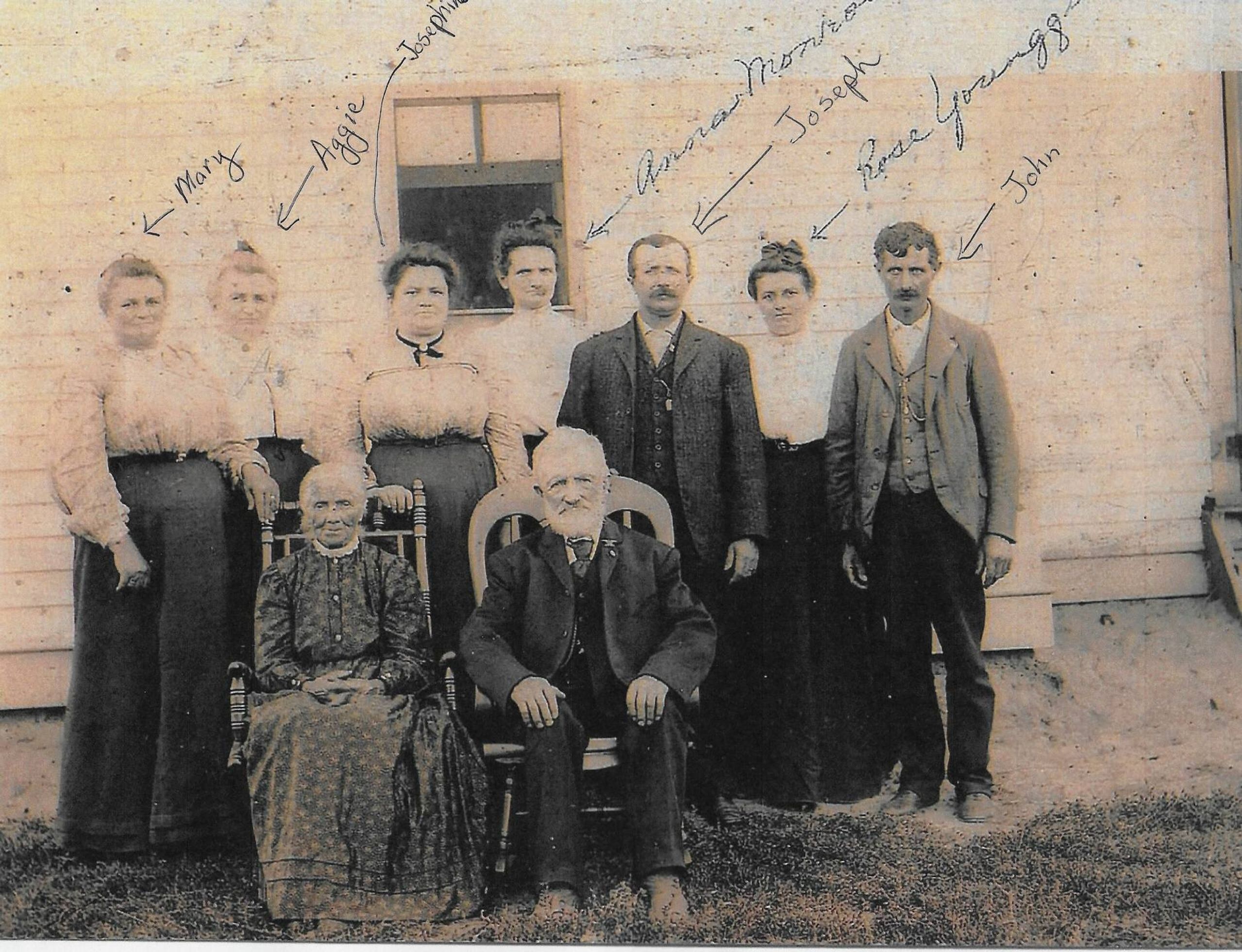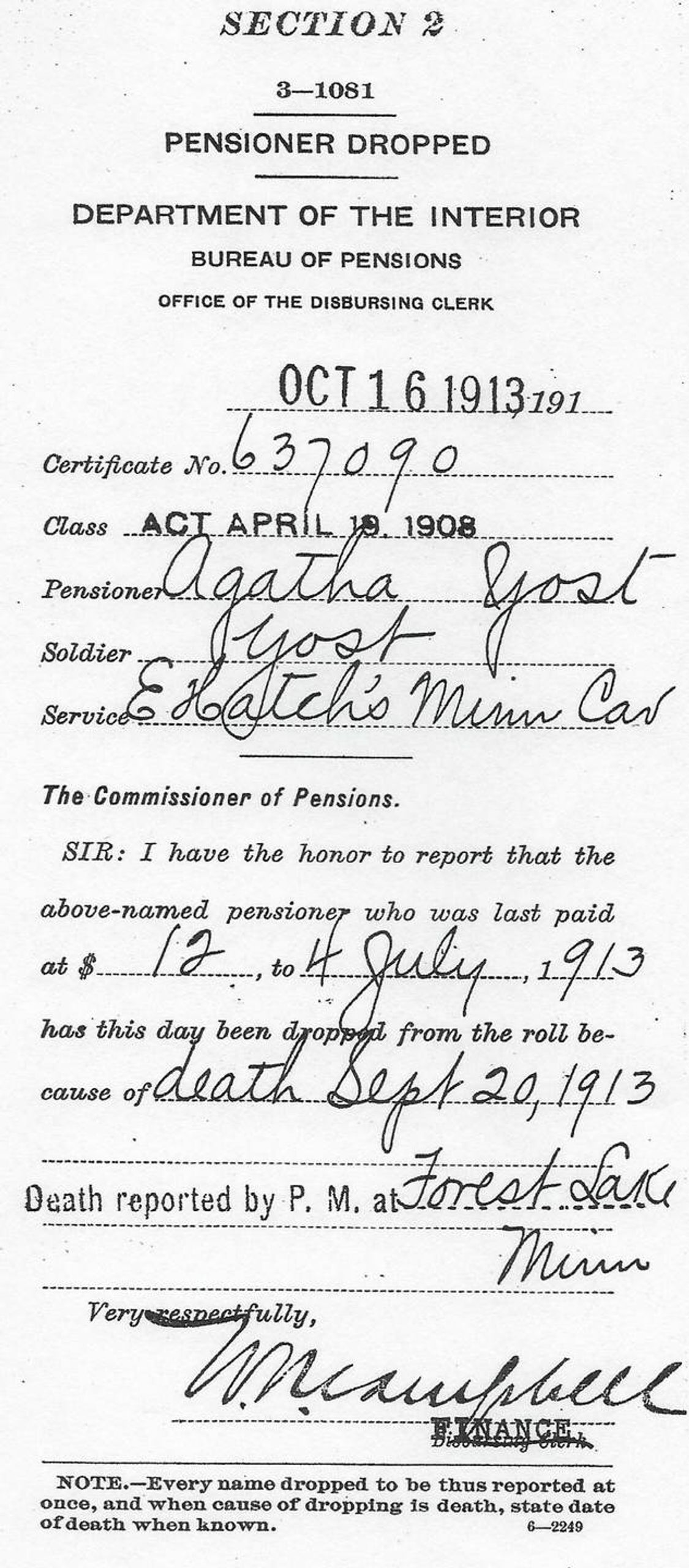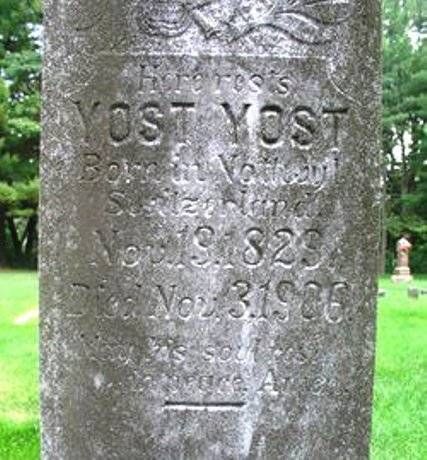Dear Minnesota – Victoria Lynn Smith
A Swiss immigrant who built his first home in Minnesota from logs and allegedly stopped a cannonball with his leg, Victoria Lynn Smith shares the legacy of her great-great-grandfather, Yost Yost.

Dear Minnesota,
Yost Yost, my great-great-grandfather, was born in Nottwil, Switzerland, on November 19, 1829. At the time his double name was a common practice by Swiss parents. Yost's father, Jacob Yost, was a nail maker and taught his son the trade. Yost, too, made nails before emigrating in 1854. But after he arrived in America and settled in Rochester, New York, he became a blacksmith.
On July 16, 1855, Yost married Agatha Gassman in Rochester, New York. She'd arrived in New York City in January 1855. She was born in Switzerland, but her birth year is a mystery. It has been listed as 1820, 1823, 1825, and 1827. I can only guess why so many different birth years appear on documents clearly referring to the Agatha Gassman who married Yost Yost. Perhaps vanity tempted her to misrepresent her age. Perhaps others made mistakes and recorded her birth year incorrectly.
In the fall of 1856, the availability of land enticed Yost and Agatha to move to Columbus, Minnesota. Yost used his blacksmithing skills during the winter of 1856-57 to support himself and Agatha, pregnant with their first child, Maria, born in April 1857. They had six more children: Josephine, Joseph, John, Agatha, Anna, and Rose. In the spring of 1857, Yost and Agatha attained land and built a log house. They were successful farmers, and their farm grew to 440 acres. They ground their own flour, sewed their own clothes, and made their own tallow candles. According to family lore, when they bought their first kerosene lamp, they proclaimed it was "real progress."

In spring and fall, Yost walked from Columbus to St. Paul, a distance of 50 miles, to buy supplies they couldn't produce. After a road was built, he drove a wagon to make the trip. In August 1864, Yost, 34, enlisted in the Minnesota Cavalry, Hatch's Battalion, Company E, serving until his honorable discharge in May 1866. I wonder how Agatha coped on a farm with five children, ages 1 to 7, while he served in the military. But he was granted at least one furlough during his enlistment. He was stationed on the Dakota-Minnesota frontier about 50 miles northwest of Mankato. According to a family history written by his grandson, Fred, Yost "stopped a cannonball with his leg."
However, Yost's military records tell a different story. In 1886, Yost applied for an invalid pension because of an injury he received near Fort Ridgely in June 1865. While out on patrol, his horse threw him, and he injured his back. It never completely healed, and as he aged, he developed rheumatism in his spine. How did an injury from tumbling off a horse become a story about being hit by a cannonball? Perhaps Yost was trying to impress his grandchildren. Perhaps once, when asked why he limped, he joked about getting hit by a cannonball, and that became the story.
While living in Columbus, Yost served as a town clerk, a justice of the peace, and a supervisor. The Compendium of History and Biography of Central and Northern Minnesota by George Ogle and Company, published in 1904, states, "Yost has resided in Anoka county for nearly half a century, and he has formed a wide acquaintance and is held in the highest esteem as an agriculturist and worthy citizen." Yost became a naturalized citizen of the United States on March 23, 1897. As Yost aged, his back injury made farming difficult. He retired, and his sons, John and Joseph, ran the farm. Yost died on November 3, 1906, just short of his 77th birthday. Agatha died on September 20, 1913. They're buried at St. Joseph's Catholic Cemetery in Wyoming, Minnesota.



